How to wrap my brain around horror and joy — two diametrically opposed emotions — experienced one hour apart? That is what I am struggling with tonight. My cousin, Panorea, and I share a love of history and this evening, we attended a lecture and film on the 100 year commemoration of the Pontic genocide. This was the ruthless and systematic killing of Christians and Greeks in the region of the Black Sea in 1919 by the Ottomans. Over 343,000 were massacred.
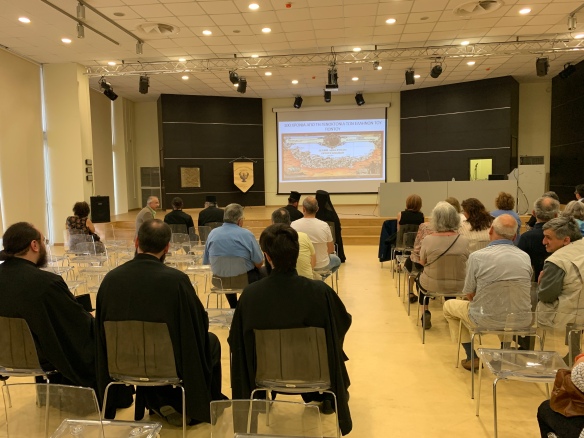
The speaker authored a book and produced a documentary on this topic, based on the oral histories of survivors and their families. The film portrayed the story of one of the survivors and his escape from the genocide. Among the scenes was a small group of Ottomans playing musical instruments and walking through villages; as they played, their leader shot everyone in sight. Killing to the sound of music? That is beyond barbaric. In another scene, the escapee hid under a bale of hay in a field. He saw a fellow Greek passing by on a donkey, and ran to him for help. Hesitant, the rescuer asked the escapee to recite the Lord’s Prayer and the Orthodox creed. When he did, the two embraced and the escapee was given food, companionship and a path to freedom. This scene portrayed how the Orthodox religion was the major factor in binding and sustaining Greeks through foreign oppression.
Although the lecture and film were in Greek, I understood enough to feel physically ill. The cruelty of men towards others, strictly based on ethnicity and religion, is humanity’s darkest side. Bishop Eustathios of the Metropolis of Monemvasia and Sparta, gave concluding remarks. We must always remember the innocent and not forget. Yet we must forgive as Christ taught.
We left the lecture with somber hearts to meet Panorea’s family at–of all things–a panegyri (festival) at the village church of Amykles. Music, dancing, food, laughter, friendship–all hallmarks of these joyful events–enveloped us as we entered the church platea. I saw tables filled with hundreds of people enjoying life and embracing the moment.
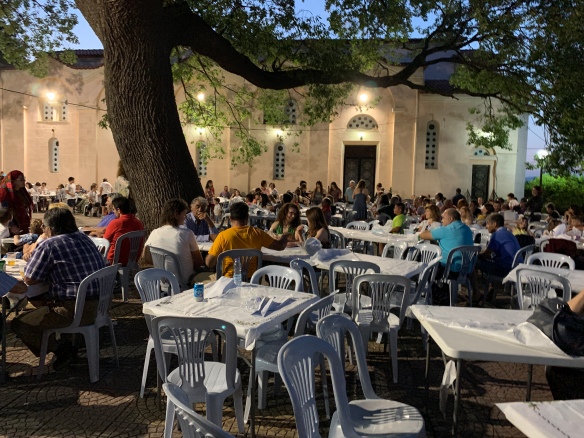
We arrived too late to see the traditional dancing, but early enough to enjoy souvlaki and music.
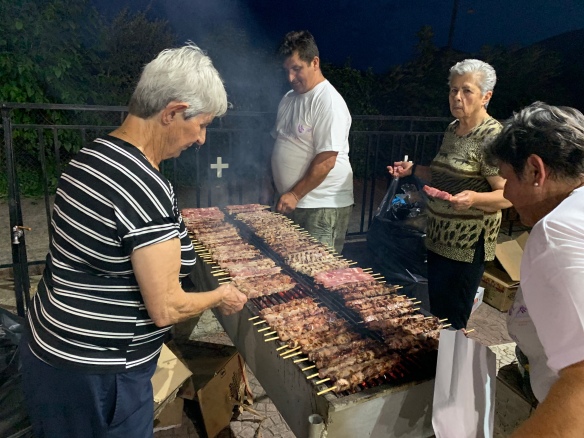
As I watched children play soccer and adults wait for food, my heavy heart lightened a bit.
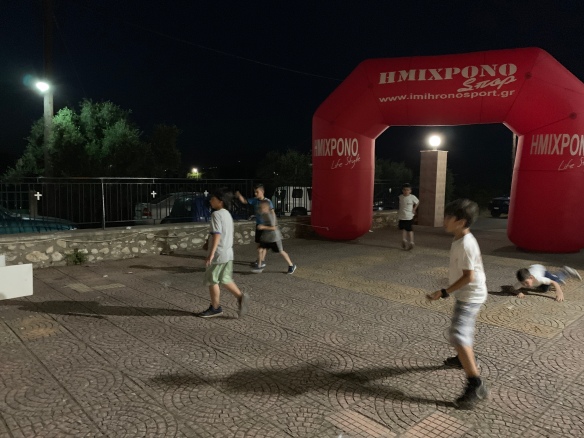
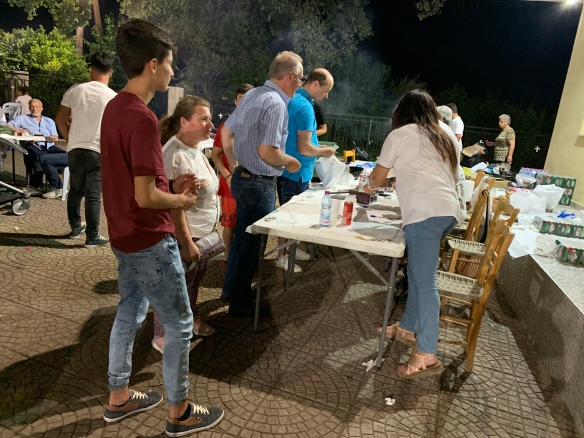
This is our time to live. Trials await and challenges lurk. We face provocations our ancestors could not conceive. Those who lost their lives in innocence will never be forgotten in Greece–or hopefully elsewhere.
We move from dark to light and back again, sometimes on an hourly basis. But I trust, and know, that light will always prevail.




























